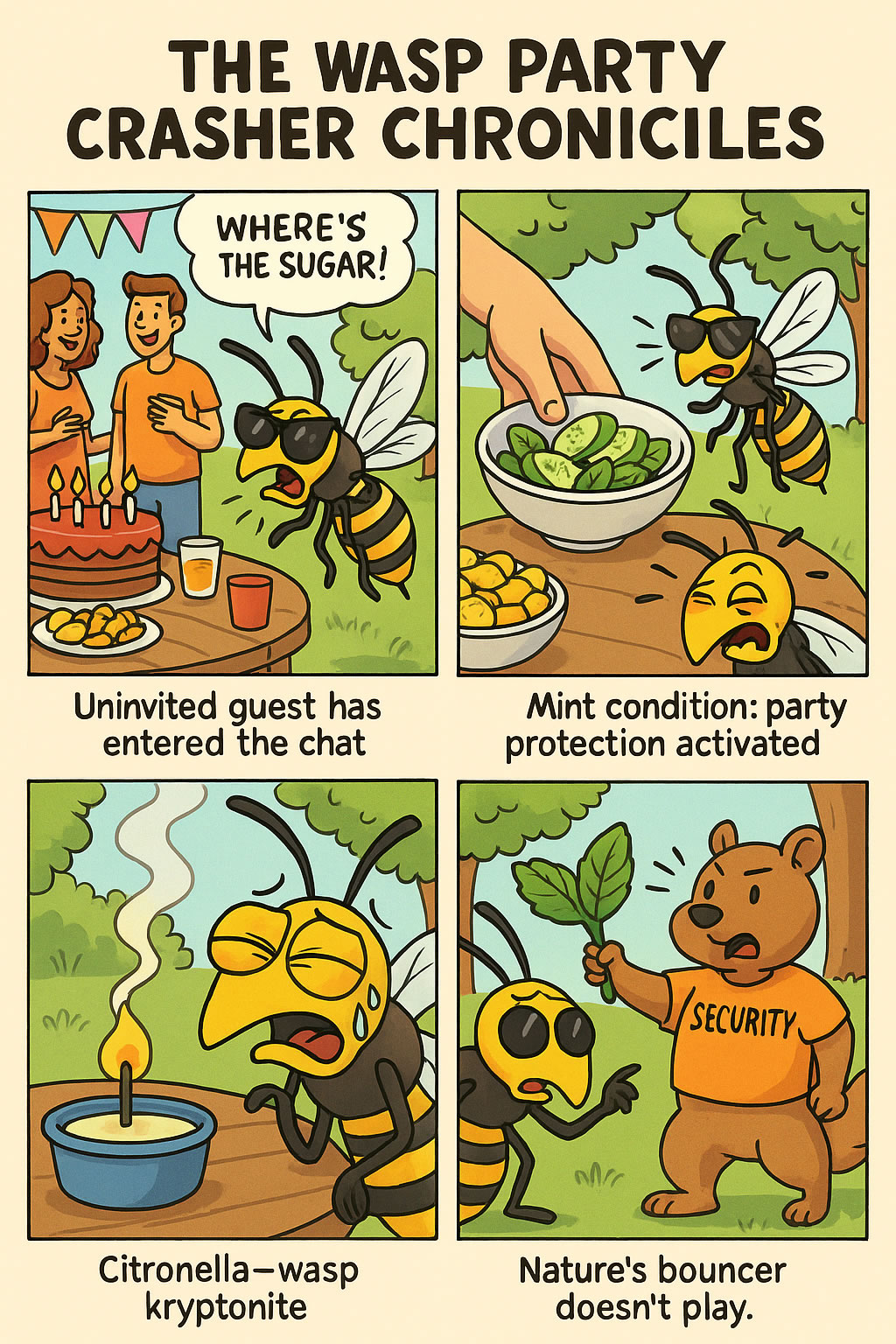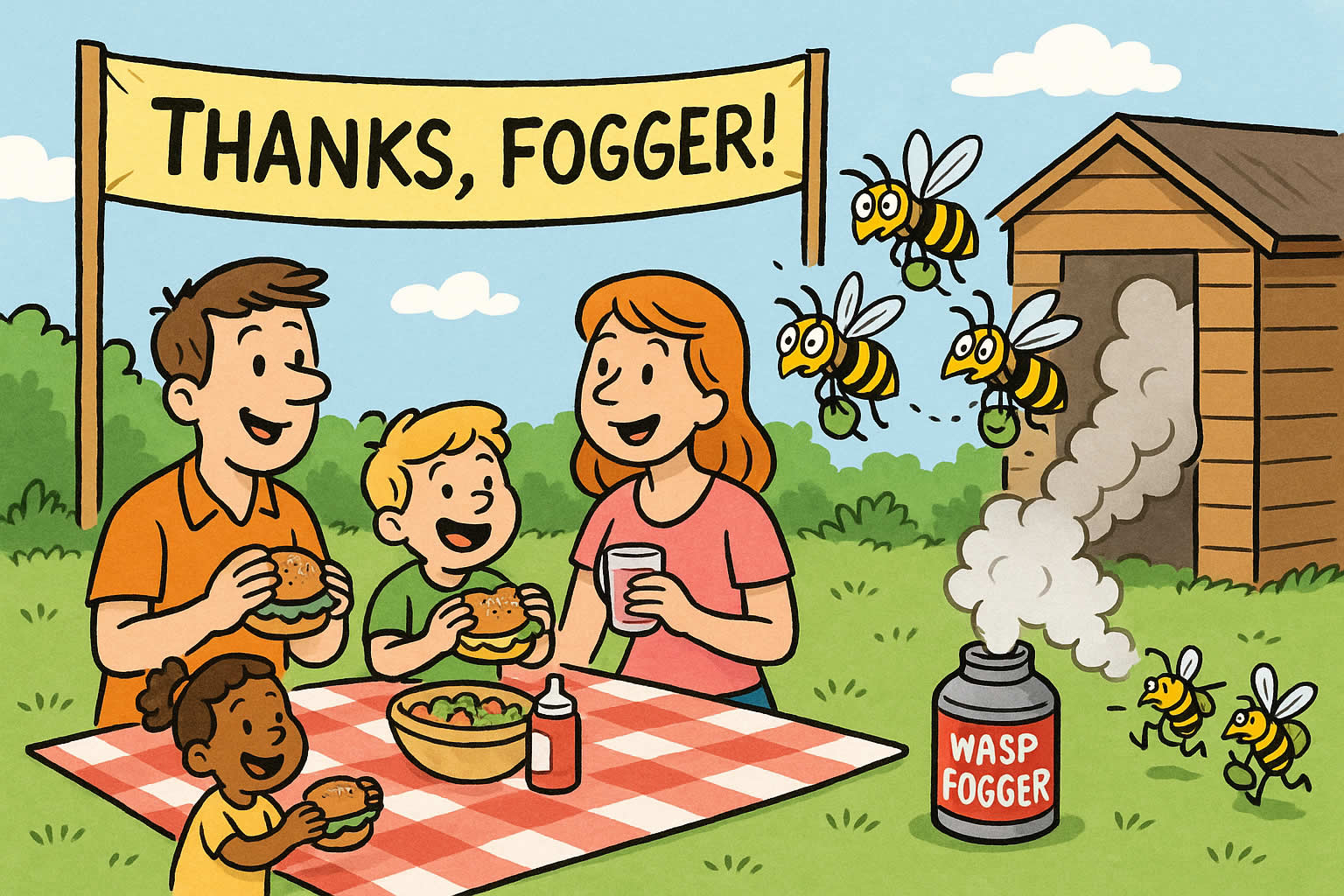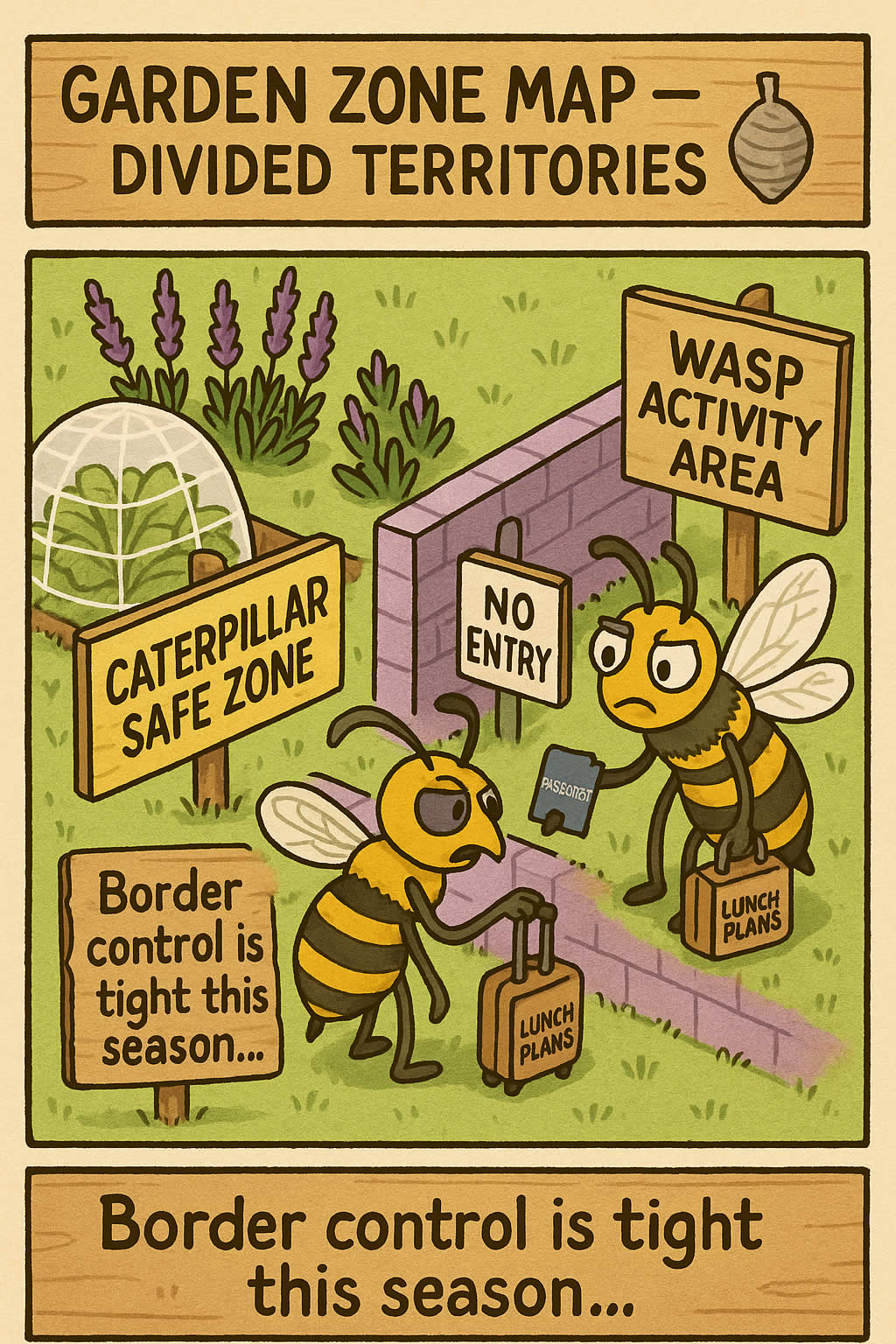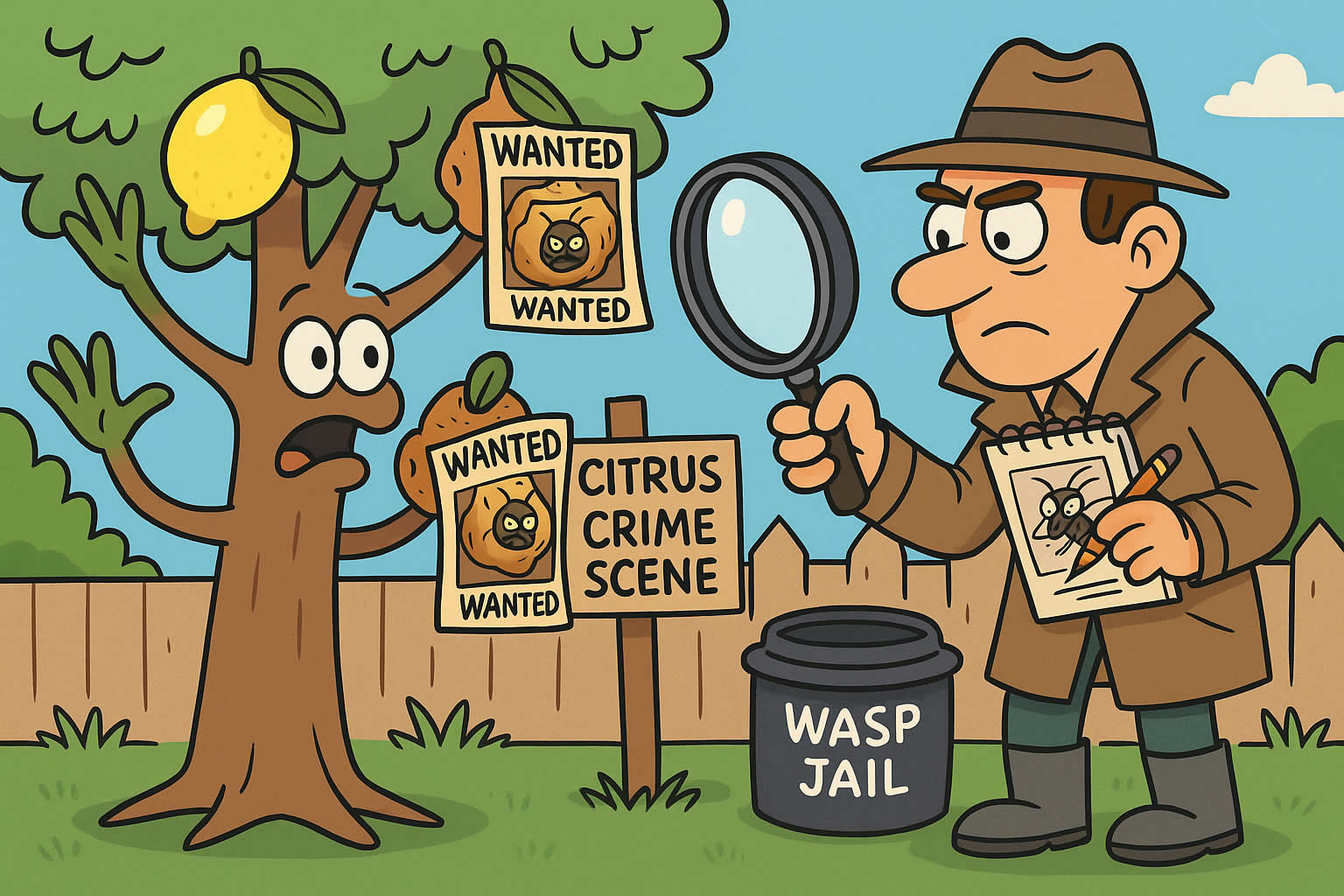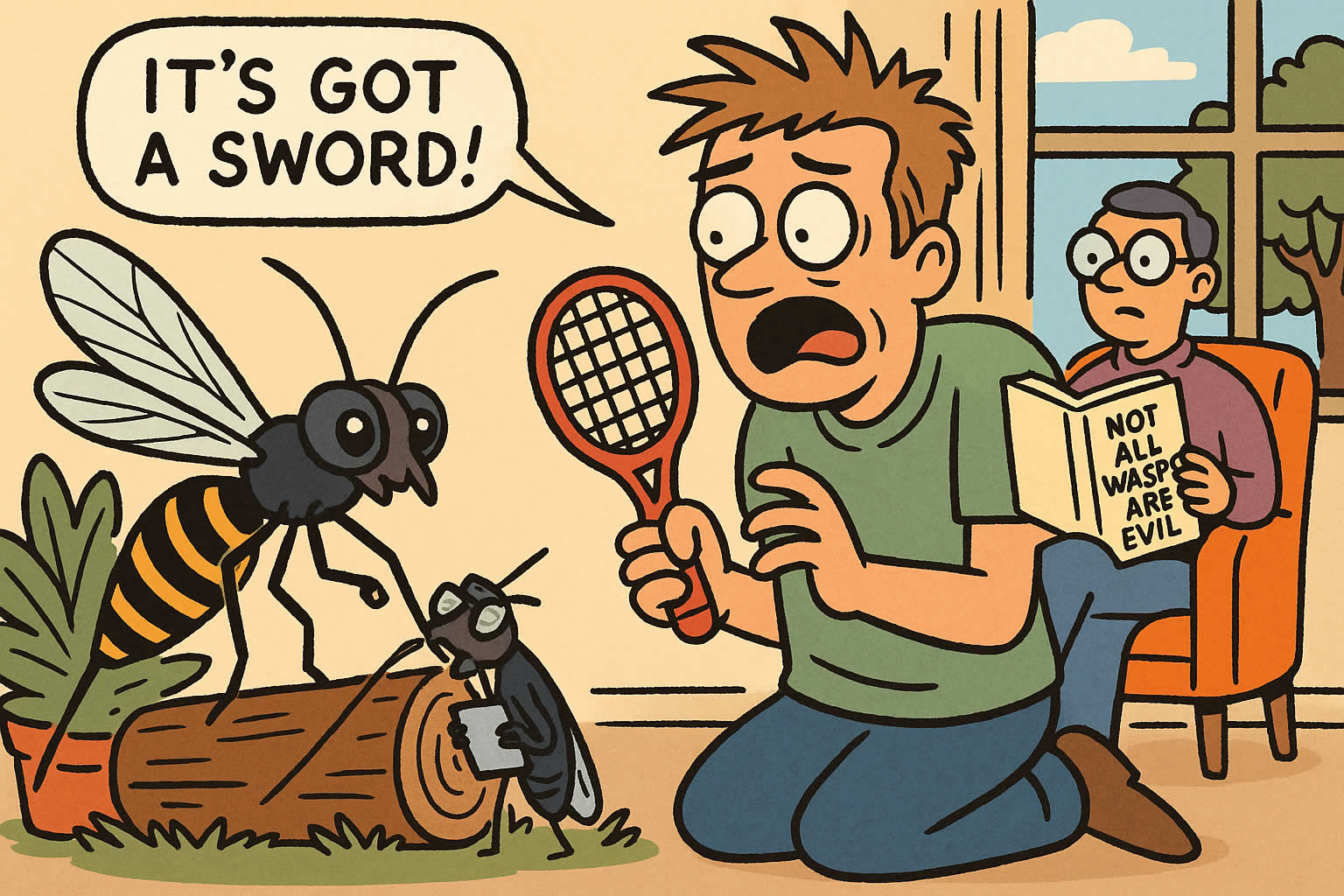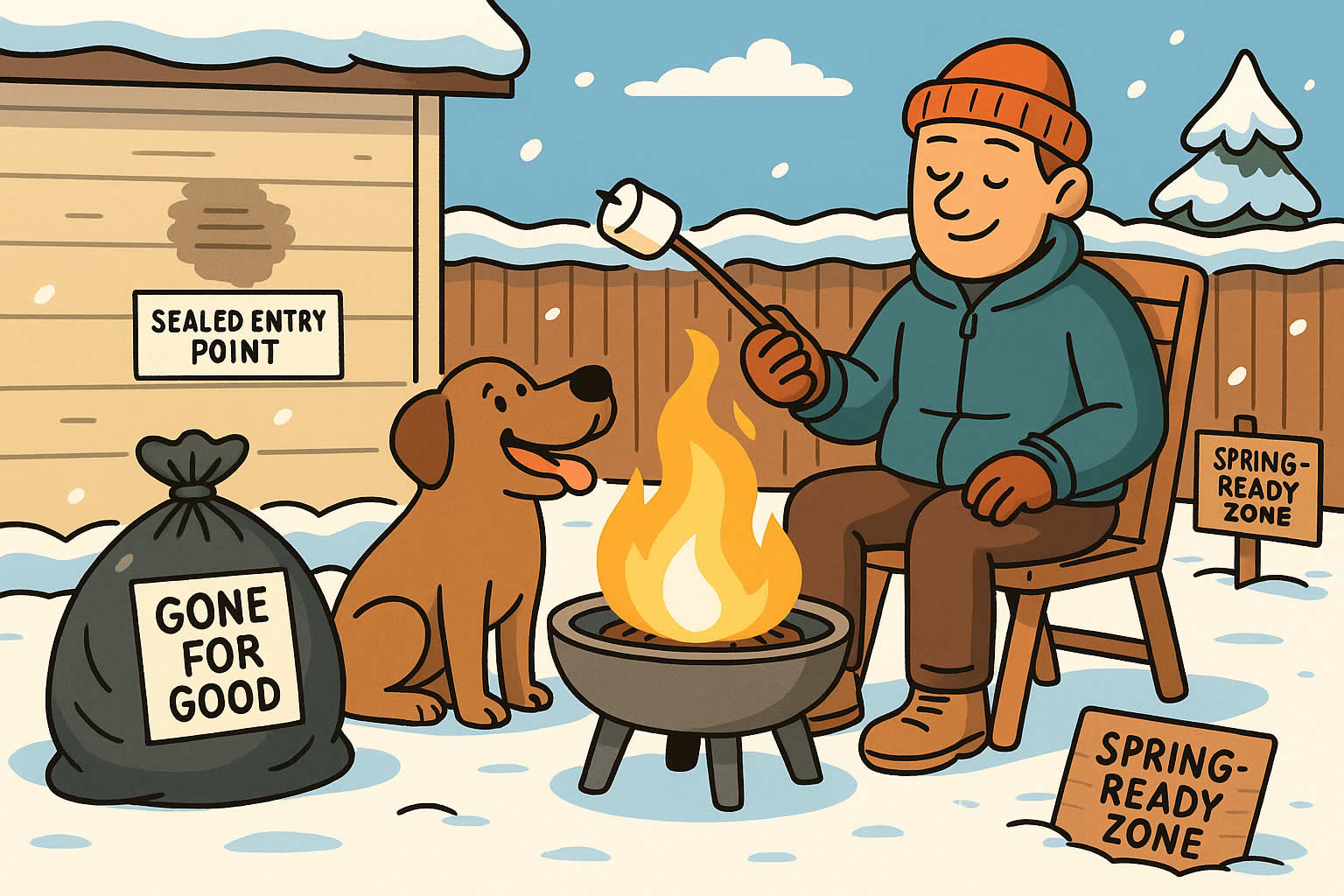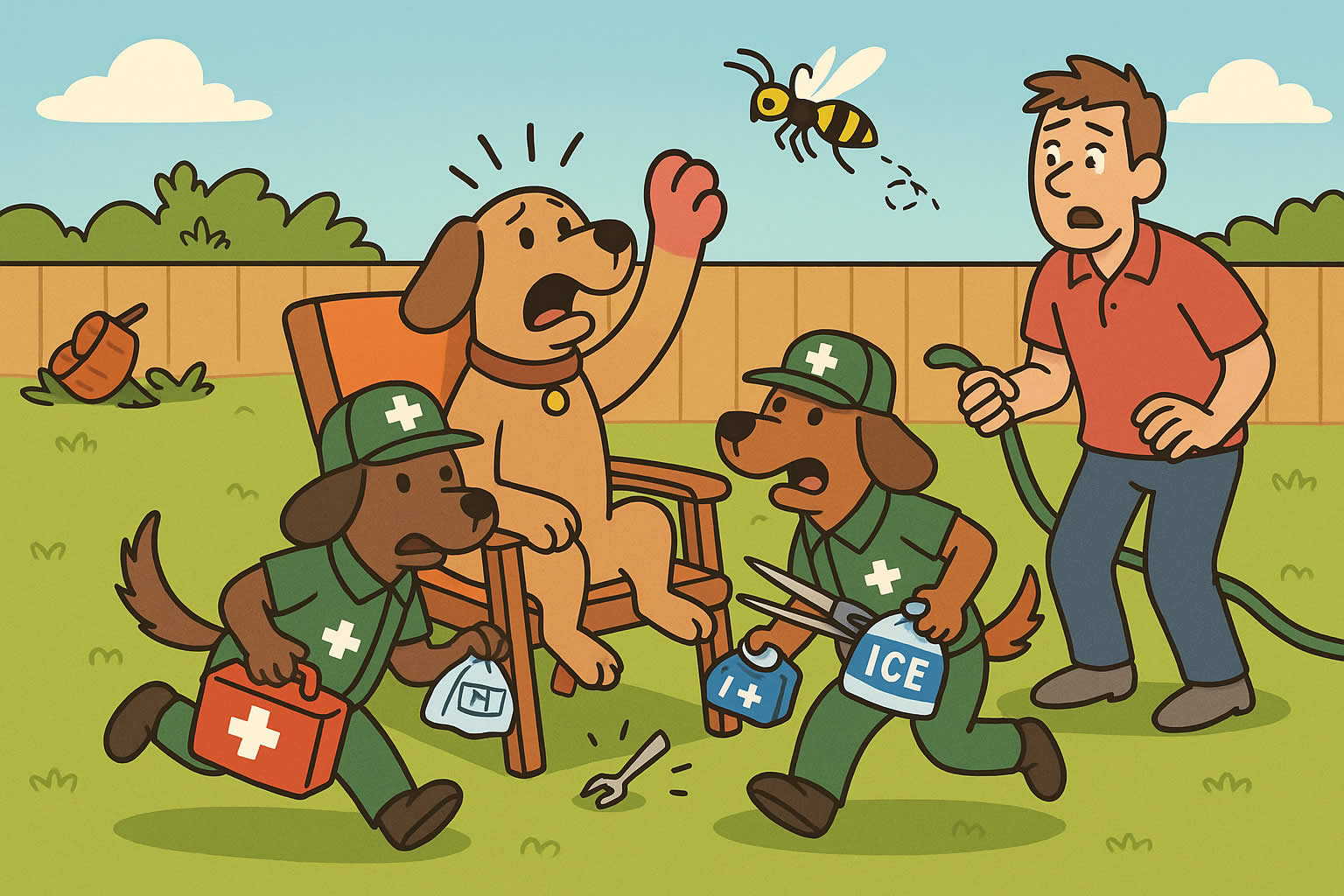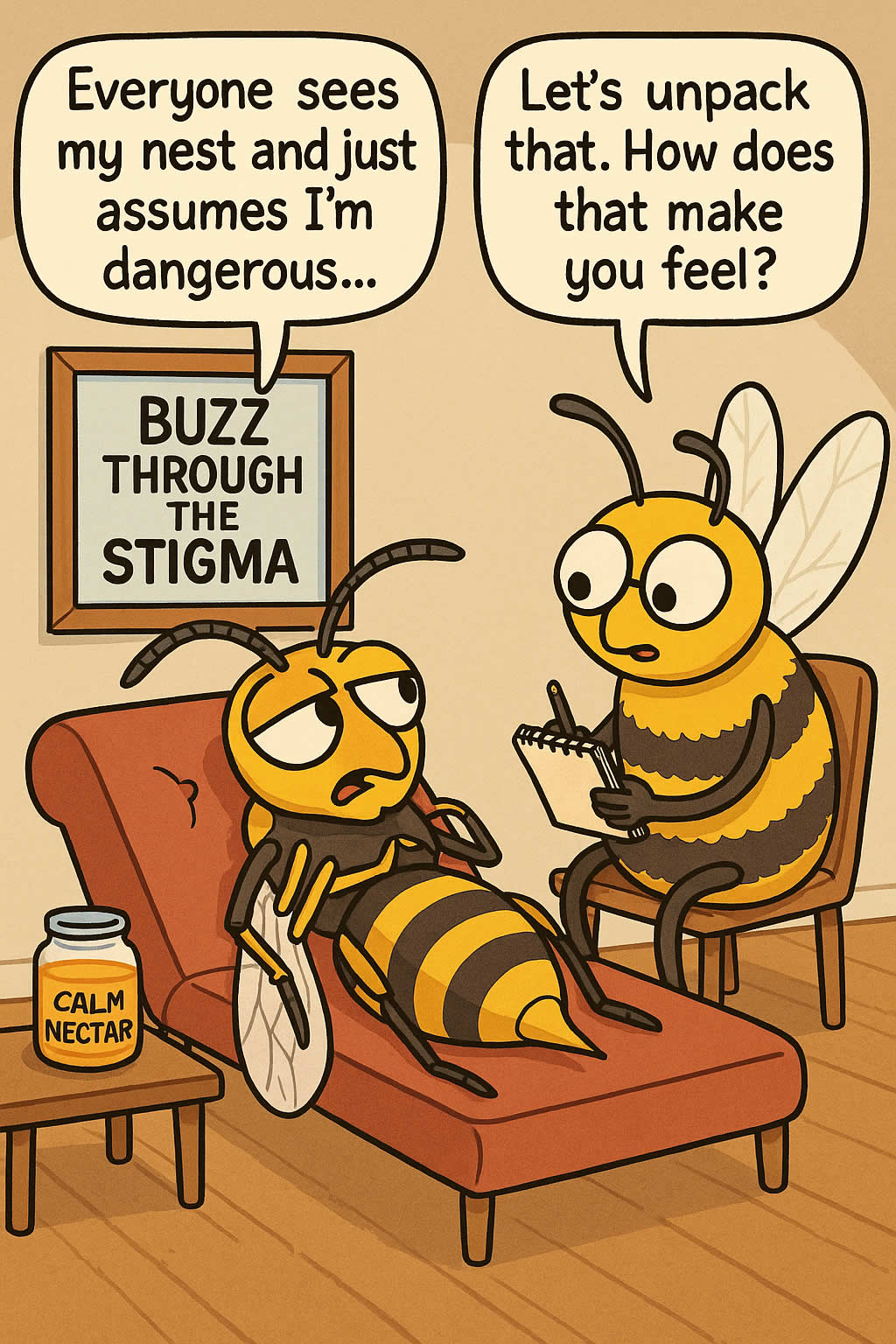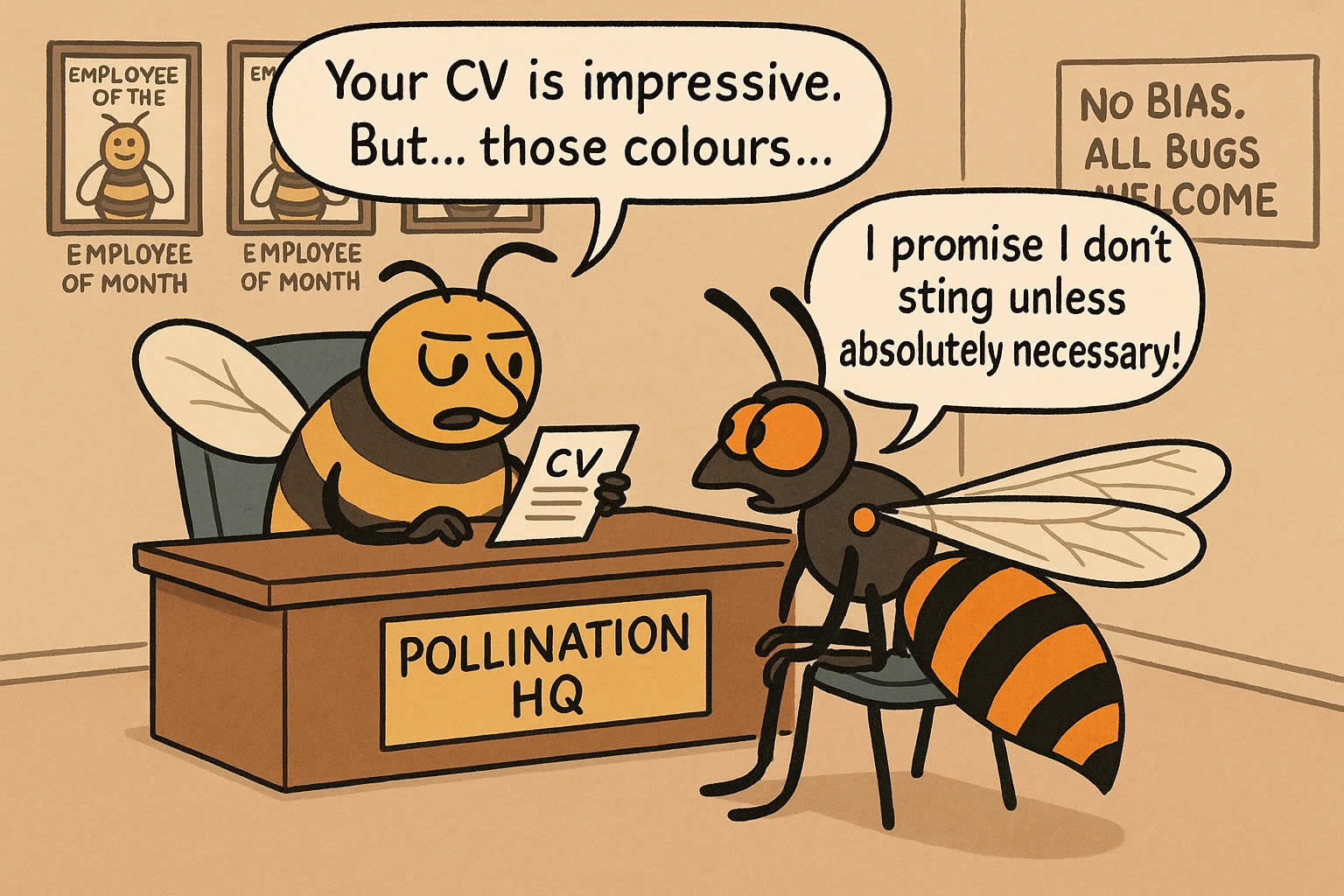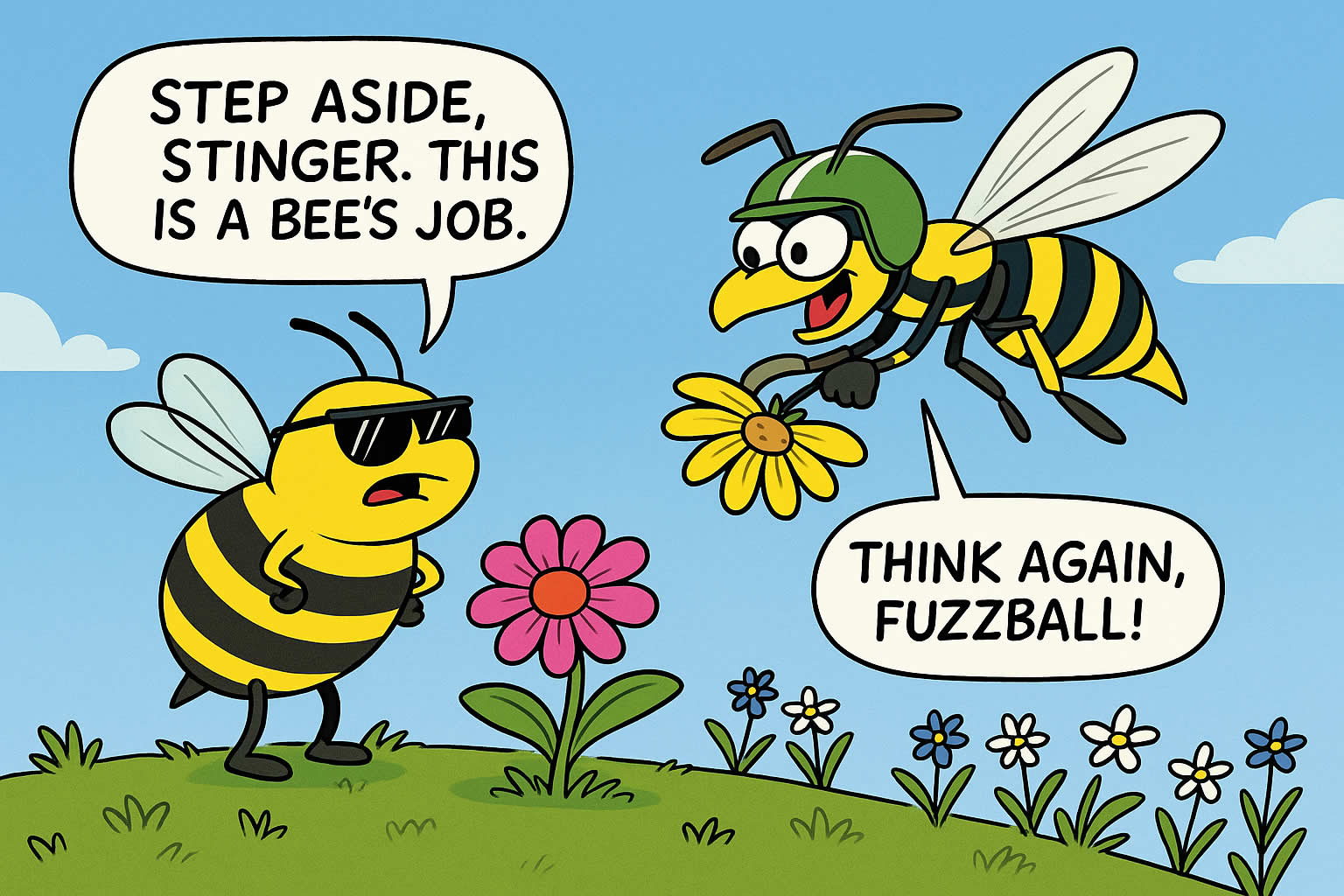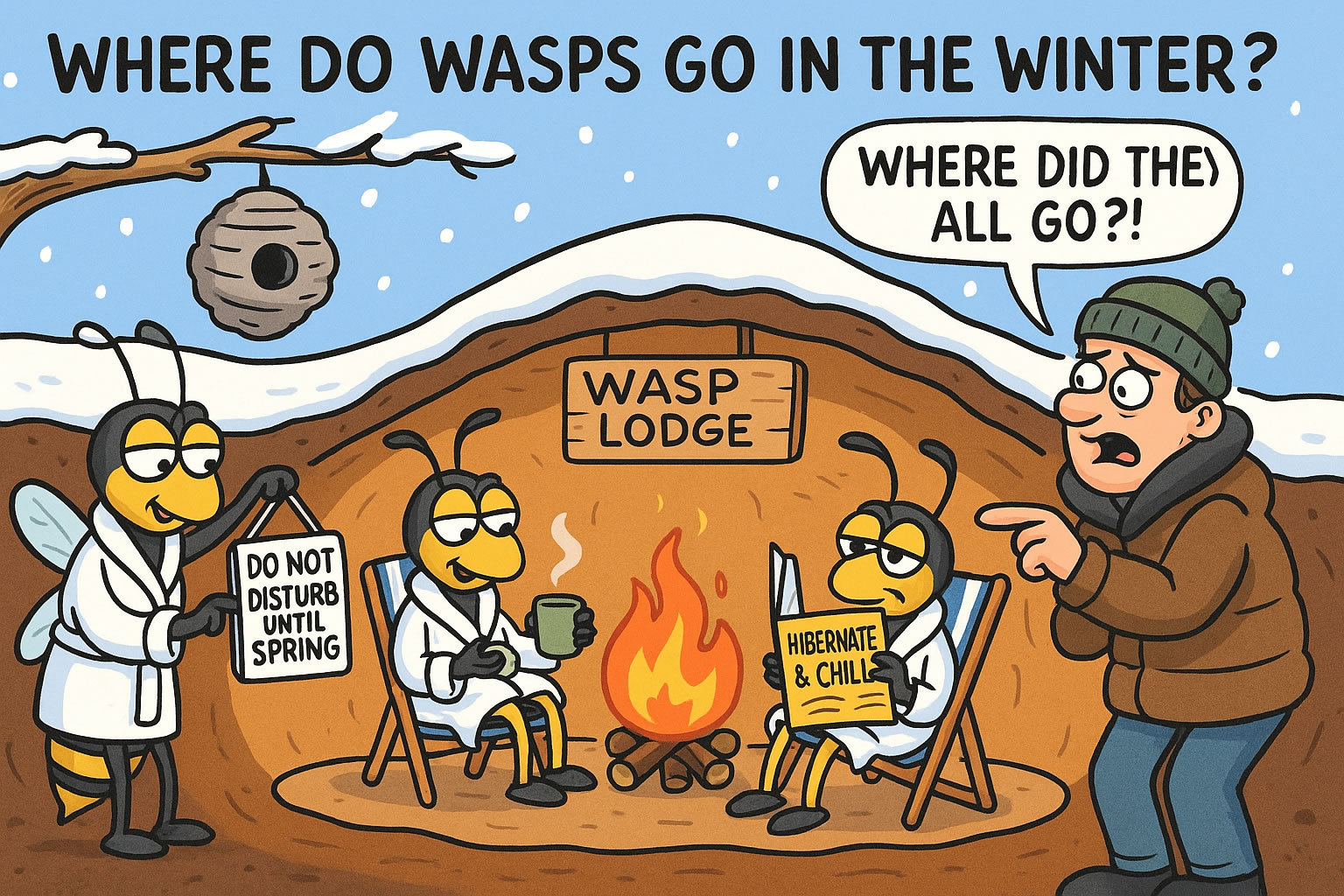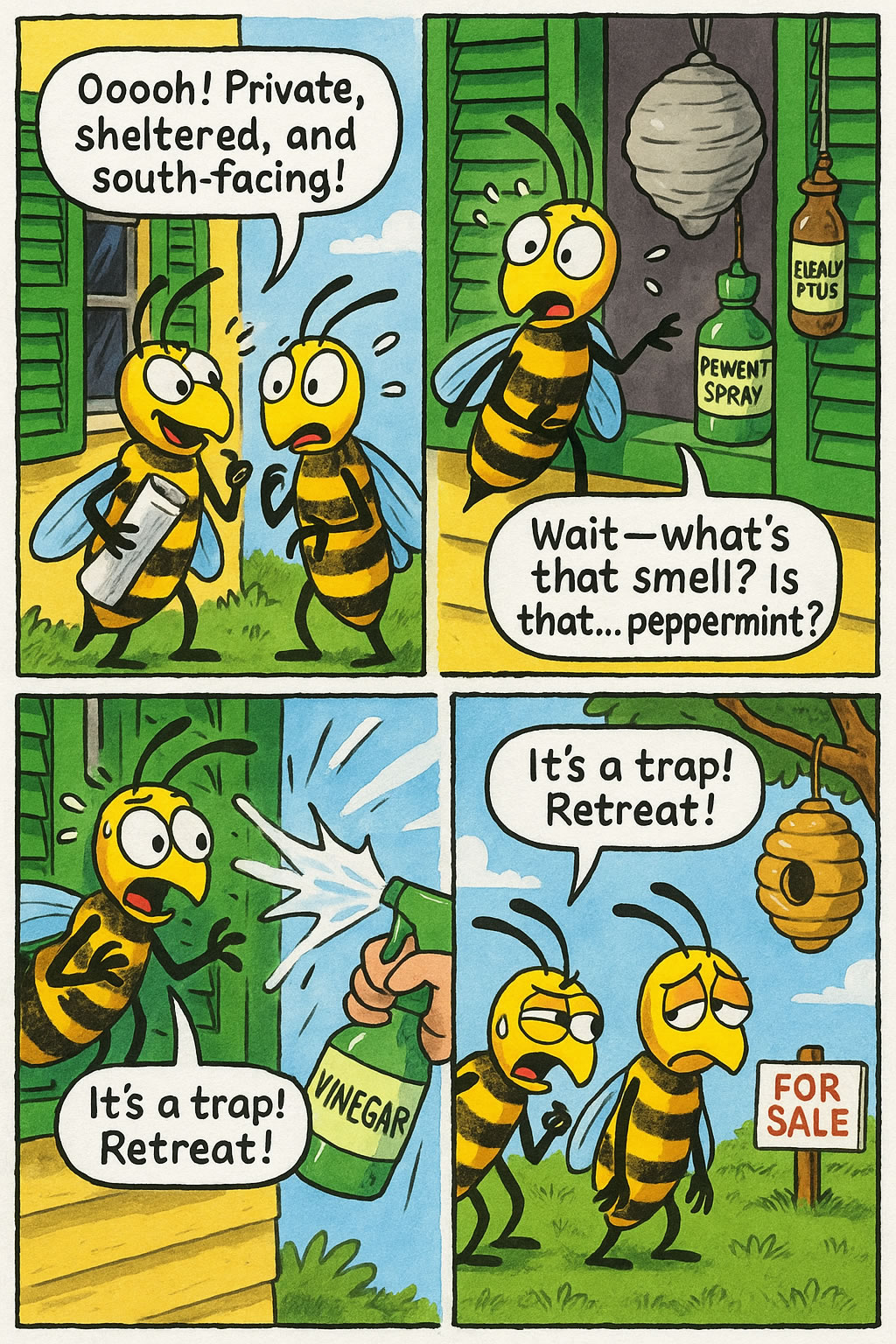Related Queries
ToggleThe UK alone is home to about 7,000 different wasp species. Most people run into just a few types at their summer parties, like German wasps and common wasps, though we’ve learned ways to keep them away from our outdoor gatherings.
These uninvited guests become a real nuisance late in summer and early fall as their colonies grow to full size. Their eating habits change throughout the season. They look for protein-rich foods early on to feed their young, then switch to sweet treats as summer progresses. You can keep wasps away more effectively by knowing what they don’t like. Several essential oils work well outdoors – peppermint, lavender, and citronella have shown great results.
A clean outdoor space keeps wasps away by a lot. These insects aren’t all trouble though – they help control garden pests by eating caterpillars and aphids. Nobody wants wasps around when they’re trying to enjoy a meal outside, so knowing how to keep them away helps everyone stay comfortable and safe.
This piece will show you natural ways to keep wasps at bay and make your outdoor meals more enjoyable without using harmful chemicals or taking extreme steps.
Understand What Attracts Wasps to Outdoor Parties
Let me help you keep those pesky wasps away from your outdoor gathering. You need to know what makes these insects show up at your party. Their behavior changes throughout summer, which makes deterring them quite challenging.
Why sugary foods and drinks are a magnet
Wasps have a strong sweet tooth, especially in late summer and fall. They look for sugary substances like soft drinks, ice cream, fruit juices, and even alcoholic beverages. This happens because the colony’s larvae have mostly grown into adults, which cuts off the workers’ natural sugar source.
The craving for sweets becomes intense by August when the queen stops laying eggs and workers lose their regular sugar supply. Research shows that wasps are happy to check out open soda cans, desserts, and ripe fruits at your picnic table. These insects sometimes feed on fermented windfall fruit, which can make them “drunk” and potentially more aggressive.
How protein-rich foods draw wasps early in the season
Early summer brings different priorities for wasps. We noticed they hunt for protein-rich foods to feed their growing larvae. Your outdoor barbecue becomes extra attractive as wasps target hamburgers, hot dogs, chicken, and other meats.
Adult wasps can’t eat solid food. They hunt protein sources, chop them up, and bring them back to feed developing larvae. The sort of thing I love is how the larvae produce a sugary secretion that adult wasps feed on—creating a natural exchange system within the colony.
The role of scents and bright colors
Your party might have specific sensory cues that attract wasps:
- Bright colors: Wasps connect bright colors with flowers—their nectar source. Floral prints and vivid decorations can attract wasps even without food present.
- Strong scents: Wasps have a highly sensitive sense of smell and follow aromatic trails from perfumes, colognes, and scented lotions. These fragrances often match the floral scents that wasps naturally seek out.
Open garbage containers near your party area become wasp magnets. Wasps communicate with each other about food sources, so a single scout wasp finding your picnic can quickly bring many more uninvited guests.
These attraction patterns help me create better strategies to keep wasps away from outdoor gatherings all season long.
Smart Ways to Keep Wasps Away from Food and Guests
A good food management strategy helps keep those buzzing party crashers away. Our experience with wasps has helped me find several practical ways to keep these uninvited guests away without using harsh chemicals.
Cover food and drinks when not in use
The best way to stop wasps from finding your feast is to keep everything covered. Scout wasps alert their entire colony once they spot food, so hiding items from view is significant. Here’s what works best:
- Mesh food covers for plates and serving dishes
- Silicone cup covers or small plates over glasses
- Tight-fitting lids on tupperware containers
- Cupcake liners with straw holes as drink “hats”
You should always check before drinking from cans or bottles, as wasps can slip inside without you noticing.
Use decoy food stations away from the main area
Moving wasps away from your gathering really works. Sweet treats like jam or ripe fruit placed about 20 feet from the dining area make great decoys. Scout wasps that find these decoys will direct their colony members to these offerings instead of your main feast.
Clear leftovers and spills quickly
Quick cleanup makes a huge difference in keeping wasps away. These insects get attracted to even tiny food particles – proteins early in summer and sweets later on. This routine includes:
Tables and surfaces get wiped down right after meals Barbecue grills need a good clean after cooking Fallen fruit under trees must be removed Drink spills need immediate attention, especially sugary ones
The recycling items like soda cans need a complete cleaning before storage.
Keep trash bins sealed and away from guests
Wasps love garbage containers. Your best bet is to place them far from dining areas with tight-fitting lids. Bungee cords do a great job of keeping those lids secure. Bin liners stop food from sticking to container sides and reduce odors that attract wasps. Compost piles should also stay away from gathering spaces if you’re into composting.
These practical steps have helped me reduce wasp encounters during outdoor gatherings dramatically.
Natural and Safe Wasp Deterrents That Work
Nature provides powerful tools to keep wasps away, beyond strategic food management. I have found that specific scents and plants naturally repel these unwanted guests without harmful chemicals.
What do wasps hate: scents that repel them
Wasps’ sensitive sense of smell can work to our advantage. The Journal of Pest Management Science published research showing certain scents overwhelm and disorient wasps, which makes them avoid treated areas. The most effective wasp-repelling scents include:
- Peppermint
- Clove
- Lemongrass
- Geranium
- Eucalyptus
- Citrus oils
- Thyme
A scientific study showed that wasps completely avoided food baits when treated with a combination of clove, geranium, and lemongrass essential oils.
How to deter wasps naturally with herbs and oils
A wasp repellent spray using essential oils works great. Here’s a tested recipe:
- Fill a spray bottle with water
- Add 10-20 drops each of peppermint, lemongrass, and geranium oils
- Add a few drops of dish soap (helps the oils disperse)
- Shake well before spraying around eaves, outdoor furniture, and potential nesting areas
Research shows that clove oil alone reduced wasp visits to baited traps by 95%.
Using peppermint oil and citronella candles
Peppermint oil stands out as the most effective natural wasp deterrent. Research shows it keeps away up to 83% of wasps when used correctly. A diluted solution rolled on to wrists and temples works well before heading outdoors.
Citronella candles create pleasant ambiance and keep wasps away simultaneously. The smoke and scent create an invisible barrier that wasps avoid, so place them strategically around your outdoor dining area.
Grow wasp-repelling plants like mint and thyme
Your garden can create a natural perimeter defense with certain plants. The most effective wasp-repelling plants include:
- Mint (all varieties)
- Thyme
- Lemongrass
- Basil
- Eucalyptus
- Wormwood
- Marigolds
- Geraniums
Thyme not only keeps wasps away but also attracts beneficial pollinators like bees. An outdoor seating area has mint and lemongrass planted in containers, which provides both wasp protection and fresh herbs to cook with.
What to Do If a Wasp Shows Up Anyway
Wasps sometimes crash your party despite your best efforts to keep them away. The right approach to these uninvited guests can turn a potentially painful situation into a minor nuisance.
Stay calm and avoid swatting
Your natural instinct might make you want to swat or flail your arms when a wasp shows up—but you need to resist this urge. Quick movements make wasps feel threatened and substantially increase your chance of getting stung. Here’s what to do instead:
- Stay perfectly still if a wasp lands on you
- Breathe normally and wait for it to fly away
- Brush it off gently with slow movements if needed
- Lower your head and protect your face if multiple wasps appear
The wasp’s distress pheromones get released when killed, and these alert other wasps to “attend the funeral”—potentially leading to more stings.
Move the food item it’s interested in
The situation becomes manageable once you spot a wasp checking out something specific on your table:
- Figure out which food has caught the wasp’s attention
- Let the wasp grab some food and leave
- Move that specific item several meters from your gathering
- The wasp will head back to the same food source, now safely away from your guests
This simple approach creates a natural “decoy station” that keeps the wasp happy.
Trap the scout wasp safely
Scout wasps usually find your gathering first and then recruit others. You can prevent reinforcements by isolating this pioneer:
- Put a clear glass over the wasp once it lands
- Slide paper underneath
- Let the wasp go far from your area after your meal
The trapped wasp should never be killed—its alarm pheromones will only bring more wasps to the area.
When to call a professional
Expert help becomes necessary in these situations:
- A wasp nest appears on your property
- If you have known allergies to insect stings
- Wasps keep getting into your home
- DIY solutions haven’t fixed the issue
Professional pest control experts have the right equipment and training to remove nests safely without triggering multiple stings or releasing pheromones that make things worse.
Our Final Say!
Understanding wasp behavior patterns helps us coexist with them instead of fearing them. In this piece, we’ve looked at how these insects interact during outdoor gatherings and what keeps them away. Their seasonal dietary changes from proteins in early summer to sweets later give us a practical edge in deterring them.
Smart food management is the foundation of wasp prevention. Covering dishes, setting up decoy stations and cleaning up quickly reduce unwanted encounters. On top of that, natural deterrents like peppermint oil, citronella and strategically planted herbs create barriers without harmful chemicals.
Wasps might still show up even with proper precautions. A calm response instead of panic can mean the difference between peaceful resolution and potential stings. These striped insects benefit our gardens by controlling other pest populations when they’re not disrupting our barbecues.
Plan ahead and use these proven strategies for your next outdoor gathering. Your guests will definitely appreciate a relaxed, wasp-free environment to enjoy food and conversation without disruption. Summer parties should create pleasant memories, not painful encounters with these buzzing visitors.
Pest Control Wilden – Pest Control Shelton – Pest Control Wymington
